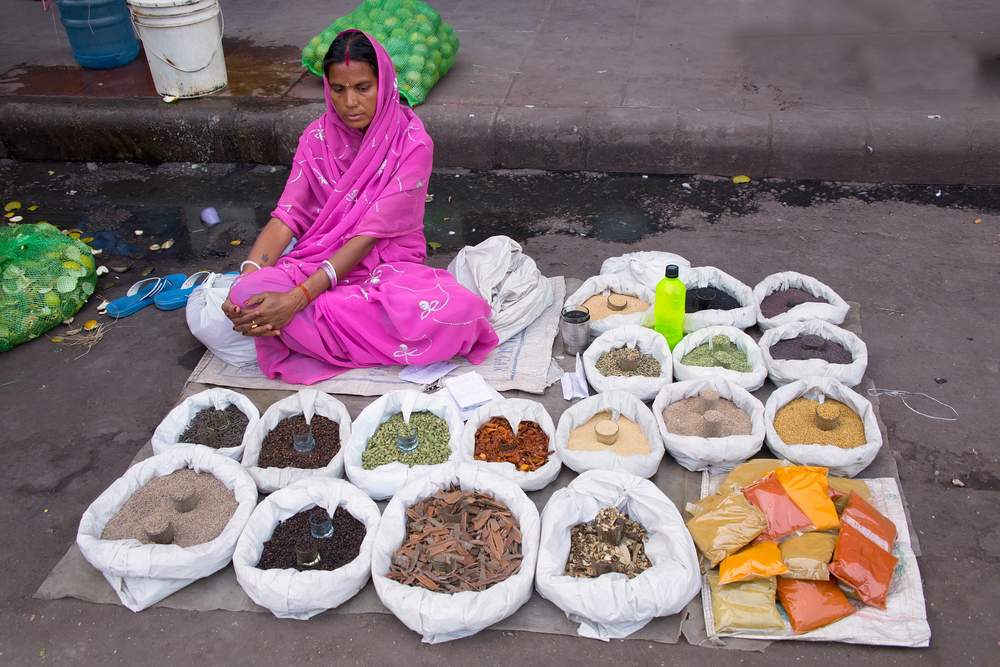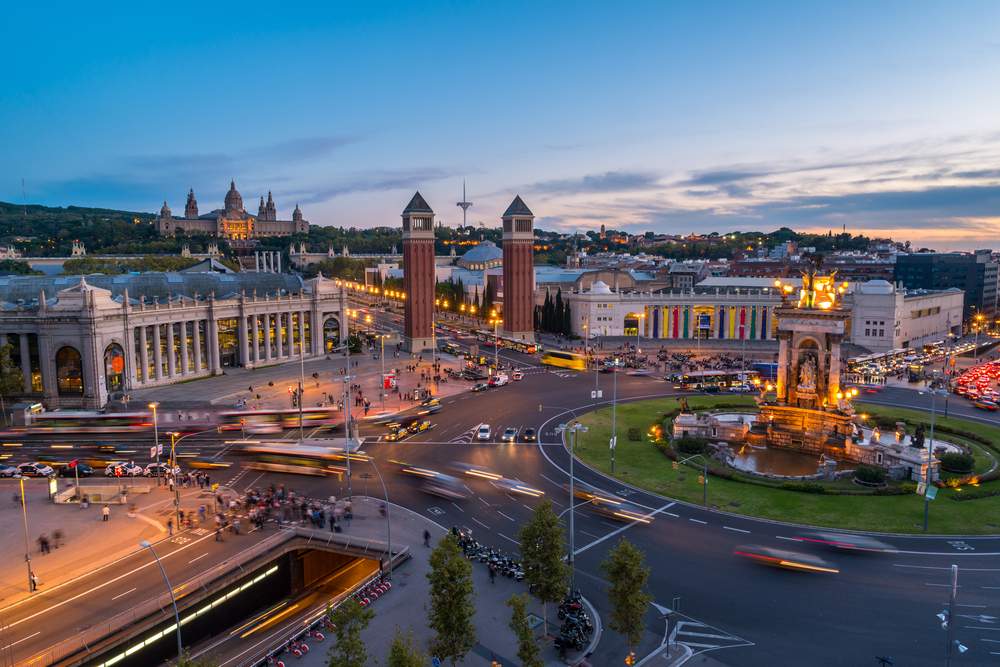While I always read about far-away places, my first taste of long-term, international travel came in college. It was there I found out I could use student financial aid to see new places, if I was willing to study or do research on the road. And I was, of course.
Leaving my comfort zone for long-stretches of time—months or more—changed my life, for the better, I believe, although the people (family, friends) I left behind at home didn’t always agree with me or make it easy.
From about 13 years old, I was always looking ahead, always in a rush to grow up and get on with life. I was over being a child, and then really over being a teenager. I couldn’t wait to graduate high school, then college, get a job, settle down, and start building a life of my own.
I was driven. I worked hard to get exceptional grades and test scores, and pushed myself to participate in extracurricular activities (I would’ve preferred to stay home and paint, write, or read), to get scholarships to pay for university.
I had multiple minimum wage jobs to save money (in my former life, I was an excellent cashier and customer service associate). I even took Advanced Placement courses for college credit to knock a few semesters of time and expense off of the university experience and graduate in 3 years or less.
Getting Hooked On Travel

Everything was going according to plan, until I attended a meeting about study abroad held by my Spanish II teacher. Turns out, I could spend my summer in Mexico, improving my Spanish and seeing some of the world, and use my college financial aid to do it.
Living with a Mexican family was an easy enough adjustment for me—culturally the family I was placed with was not so unlike my own. Comfortable but not wealthy, hard-working, religious, and highly educated, living with them felt familiar if somewhat awkward (language barriers will do that), even if the avocado tree in the courtyard seemed exotic.
For me the most difficult adjustment was coexisting peacefully with my roommate—a chain-smoking graduate student in her late twenties that thought she was in charge of 19-year-old me.
That first summer of study abroad in Cuernavaca, Mexico had me hooked on travel, but it didn’t change my mind about rushing through the motions of getting my degree. In fact, it motivated me more—the expense of two-week vacations in far away places had to be added into my American dream scenario. I needed to graduate ASAP and rush up the rungs on the corporate ladder to become VP of marketing, or something similar, some position that would allow me to make major moola, but not be mind-numbingly dull.
But I think I was the only one surprised when the next summer I was easily swayed into using my financial aid to study abroad in Madrid, Spain, by yet another Spanish teacher. The following summer, I took the initiative and used my summer financial aid budget to spend a month volunteering and doing independent research in Italy.
With each trip, and each foray into another country and its culture, I became less sure of my rigid plans for my own future. I clung to them anyway (I’m nothing if not stubborn). To be fair to my younger self, I was too invested to let go of my plan so easily. I’d spent years of my life fantasizing about finishing school, and having a wildly successful career. But then India happened.
Learning to Love and Live In the Moment

Falling in love is what finally changed it all. While I’m a firm believer in the idea that every place you visit touches your heart—I’ve never fallen as hard for anywhere as I did for India.
Despite its serious flaws—the crowds, the caste system, the chaos, the abject poverty of so many of its people, many of them only children.
Little kids, their eyes lined with kohl to protect them from the sun, begged outside shops selling 18-karat-gold, and sterling silver jewelry by weight, and hand-dyed saris. Entire families—kid-dad-mom-with-baby-in-arms on motorbikes zipped around vans, rickshaws and cows at rush hour.
On the side of muddy roads, women and children swathed in brightly colored fabric waited behind baskets of even brighter spices. The view from the train showcased lush green fields, and the workers squatting just beyond them for their morning constitutional. Elaborate Mughal tombs paid tribute to the dead. Minarets towered above mosques that coexisted with Hindu, Sikh and Jain temples in a country where minorities are categorized not by racial or ethnic heritage, but by religious faith.
Suffice it to say I was more than dazzled by the intensity of it all. The smells and sights good and bad were overwhelming, in-your-face, like so many unavoidable truths. I woke up every day inspired to learn, live, and enjoy drowning in a world that was both foreign and oddly familiar, where I was an outsider made to feel at home. I cried when I left, swore to myself that I would go back to this place that finally got through my defenses.
But falling in love with Europe and Spain in general, and Barcelona, specifically was an altogether different affair from my experience in India. After over a decade living in the Mediterranean, I’ve got real, deep-seated affection for this part of the world, but I’m embarrassed to admit it was way harder coming than it should have been, and that’s on me.
How Set Expectations Can Ruin Travel

Directly following my time in India, I found living in Spain kind of disappointing, to say the least. The cheap wine couldn’t compensate for how hard it was to find a decent curry. Barcelona was new and different, but it couldn’t compare with the colors and chaos I’d come to love in New Delhi. It didn’t help that my accommodations in India were way more comfortable than the housing I could afford as a student in Barcelona.
My first few years in Spain, my perceptions were distorted, tinged by my own background, and very set ideas about comfort and income. It’s one thing to be uncomfortable on the road for a short jaunt of a few months or less. It’s something altogether different long-term, for a year or more. That said, I’ve since learned that standards of living aren’t the same everywhere, not even in countries painted with the ubiquitous “first-world” label.
There I was in Barcelona, working a teaching job where my main qualification was having been born in the United States, and having English as my native tongue and eeking by, living in unheated, unairconditioned apartments with no clothes dryer and no dishwasher, up to my eyeballs in college loans I had no hope of paying off for a degree I wasn’t even using, racking up credit card debt on top of it all so I could travel to other parts of Europe occasionally and fly home to the states and see my family once in a while.
But despite my injured pride, I stuck the experiment out and somewhere along the way, I learned to love my life.
My perception of what wealth really is changed and I felt grateful again, content with my choices, even happy: Happy to have chosen this traveling, long-distance life; content to live with fewer things if it means having more experiences and making deeper, stronger connections with people near and far and along the way I found work that challenges and fulfills me, can be done from anywhere, AND pays the bills.
It’s not been an easy lesson to learn about myself, my life, or my perceptions of the world, but I firmly believe long-term travel was the only way for me to learn it . So if you’re wondering if it’s worthwhile to get out there and see the world, the answer’s yes. And when you go, take as much time as you can manage–you’ll probably need it. The lessons are out there waiting for all of us. We’ve just got to say yes.
Like this story? Sign up for the Daily Dose and get more BootsnAll in your inbox.